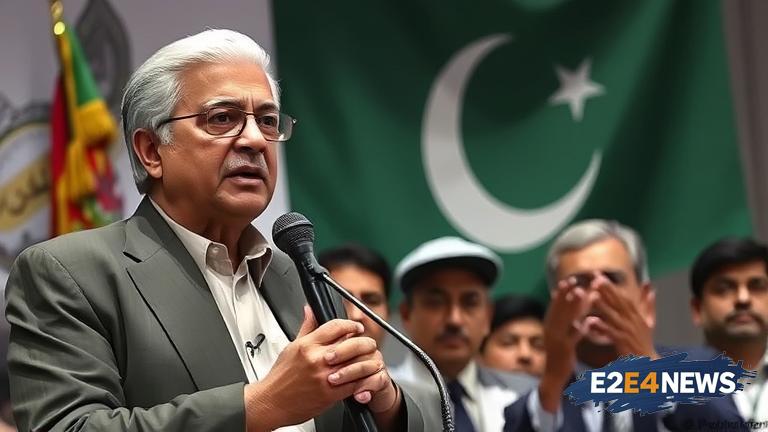In a recent statement, Khawaja Asif, a prominent Pakistani politician, has offered his insights on how the Pakistan Tehreek-e-Insaf (PTI) party can navigate its current political challenges. Asif, known for his experience in Pakistani politics, has suggested three potential ways for PTI to come out of its imbroglio. Firstly, he emphasized the importance of dialogue and reconciliation, urging PTI leaders to engage in constructive talks with other political stakeholders to find common ground and resolve differences. Secondly, Asif recommended that PTI should focus on its political ideology and core values, rather than getting bogged down in personal vendettas and power struggles. By refocusing on its founding principles, PTI can regain its momentum and reconnect with its voter base. Thirdly, Asif advised PTI to adopt a more pragmatic approach to politics, recognizing that compromise and cooperation are essential in a democratic system. He cautioned that PTI’s current confrontational stance is unlikely to yield positive results and may further exacerbate the political deadlock. Asif’s suggestions have sparked a lively debate in Pakistani political circles, with some hailing his proposals as a sensible way forward, while others have dismissed them as unrealistic or self-serving. The PTI, led by former Prime Minister Imran Khan, has been facing significant challenges in recent months, including internal divisions, external pressures, and a declining popularity. The party’s relations with other political parties and state institutions have also been strained, contributing to the current impasse. In this context, Asif’s suggestions have been seen as a timely intervention, offering a potential way out of the crisis. However, it remains to be seen whether PTI will heed Asif’s advice and adopt a more conciliatory approach. The party’s leadership has so far shown little inclination to compromise, preferring to stick to its hardline stance. Nevertheless, Asif’s proposals have highlighted the need for PTI to rethink its strategy and engage in more constructive politics. The current political stalemate has significant implications for Pakistan’s democracy and stability, and a resolution to the crisis is urgently needed. Asif’s suggestions have also sparked a broader discussion about the role of opposition parties in Pakistani politics and the need for greater cooperation and dialogue. In a democratic system, opposition parties play a crucial role in holding the government accountable and providing alternative policies. However, in Pakistan, the opposition has often been fragmented and ineffective, failing to provide a credible alternative to the ruling party. Asif’s proposals have emphasized the need for opposition parties to work together and present a united front, rather than pursuing narrow partisan interests. The PTI’s current crisis has also highlighted the importance of strong institutions and the rule of law in Pakistani politics. The party’s confrontational approach has raised concerns about the erosion of democratic norms and the potential for political instability. In this context, Asif’s suggestions have emphasized the need for PTI to respect the Constitution and the law, and to work within the democratic framework. The international community has also been watching the developments in Pakistan with interest, recognizing the country’s strategic importance and the potential implications of political instability. Asif’s proposals have been seen as a positive development, offering a potential way out of the crisis and a return to democratic norms. However, the path forward remains uncertain, and it remains to be seen whether PTI will heed Asif’s advice and adopt a more conciliatory approach. The party’s leadership will need to carefully consider its options and weigh the potential risks and benefits of different courses of action. Ultimately, the resolution of the crisis will depend on the ability of PTI and other political stakeholders to engage in constructive dialogue and find common ground. Asif’s suggestions have provided a useful starting point for this discussion, and it is now up to the parties involved to take the process forward.
